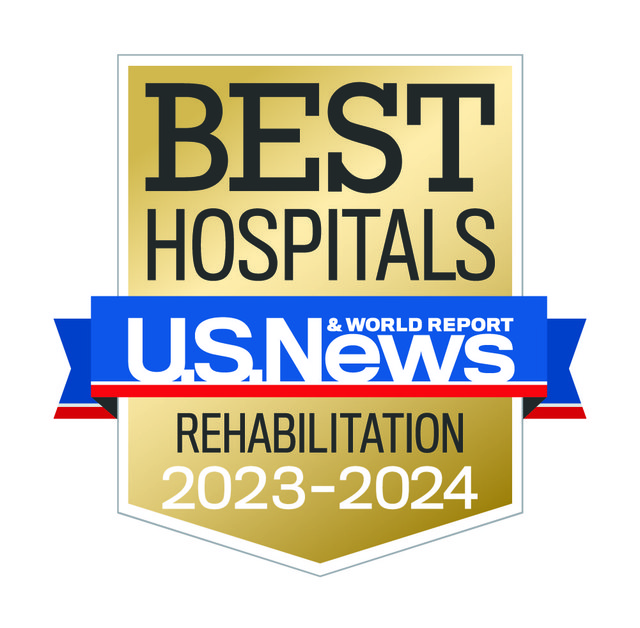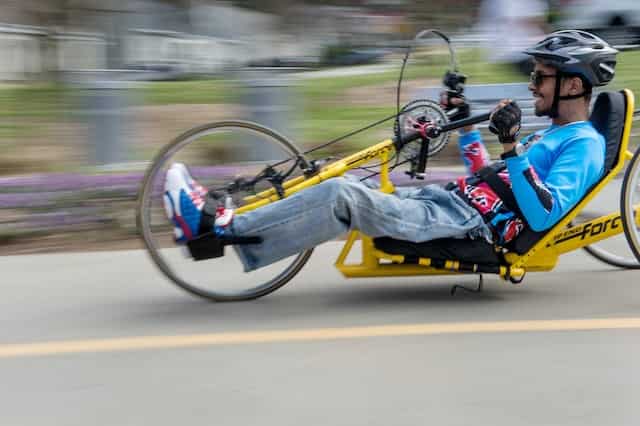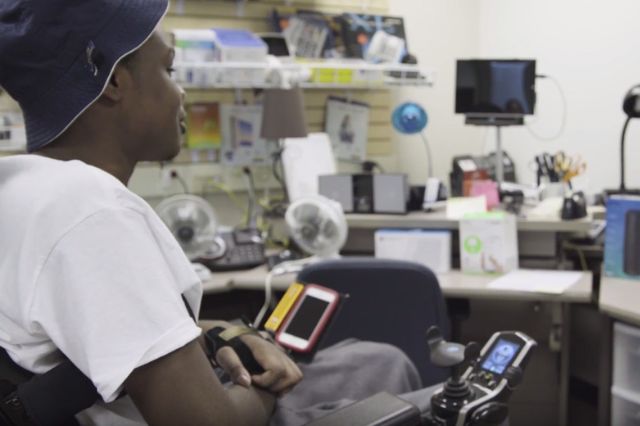Treatment for Spasticity at Shepherd Center
Comprehensive care from a multi-specialty team that understands the long-term effects of involuntary muscle rigidity
Spasticity is when you experience an uncontrolled tightening or contracting of the muscles due to complex injuries or illnesses, such as spinal cord injury, brain injury, multiple sclerosis, or stroke.
Symptoms of spasticity may include muscle stiffness, pain, spasms, weakness, and fatigue. These sudden and involuntary muscle spasms can also interfere with daily activities like walking, sitting, bathing, or dressing. Common triggers include stretching muscles, pressure sores, a urinary tract infection, or muscle injury.
The Rehabilitation Medicine Clinic at Shepherd Center can help reduce the effects of spasticity, whether the condition is new or chronic.
Our multi-specialty team includes experts in physiatry, physical therapy, occupational therapy, pain specialists, and more. To help relieve spasticity and related symptoms, we provide the most comprehensive and specialized treatments and services for short- and long-term care throughout a patient’s lifetime.
Treatments for Spasticity
A combination of treatments for spasticity provides the most benefit to patients for relief from symptoms and increased independence. Your physical medicine and rehabilitation physician will provide a comprehensive evaluation and a customized treatment plan that helps you overcome muscle spasticity symptoms and enjoy a life with less pain. Specific interventions and therapies may include:
Physical and Occupational Therapy
Physical and occupational therapy are two forms of rehabilitation that aim to improve mobility, functionality, and strength. These therapies commonly utilize stretching and strengthening exercises targeting large and small muscle groups to address spasticity.
Bracing
Braces, including splints or orthoses, limit excessive movement and spasms. Braces can help improve functionality, reduce pain, and strengthen muscles by providing support and stability to affected limbs. Bracing is often used in cases of upper and lower limb spasticity.
Injections
Injections can benefit individuals who experience spasticity, pain, and stiffness but do not have total spasticity. Neurotoxins such as Botox, Xeomin, or Dysport are commonly used in the Rehabilitation Medicine Clinic to address these symptoms. Injections help reduce muscle spasticity and promote relaxation, improving mobility and reducing discomfort.
Pump Implants
In cases where rehabilitation therapy and injections fail to provide sufficient relief from spasticity, a pump implant may be considered. An intrathecal pump is a device implanted within the abdomen that delivers a steady dose of medication into the epidural space. This method allows for the controlled administration of muscle relaxers without the side effects of drowsiness. The Rehabilitation Medicine Clinic can assess the suitability of this intervention and provide the necessary evaluation for implantation.
Appointments and Referrals for Rehabilitation Medicine Clinic
The Rehabilitation Medicine Clinic within Shepherd Center in Atlanta offers convenient access and free parking. A variety of scheduling options are provided, including repeat appointment times when available. As a one-stop shop for the outpatient management of medical conditions from a complex injury or illness, patients can access the most comprehensive services, from a visit with a physical medicine and rehabilitation physician to spasticity and case management.
The Rehabilitation Medicine Clinic at Shepherd Center
Contact Us
Our Address
2020 Peachtree Road NW
Atlanta, GA 30309-1465
Clinic Hours
Monday to Thursday
8:30 a.m. - 4:00 p.m. ET
Friday
8:30 a.m. - Noon ET




